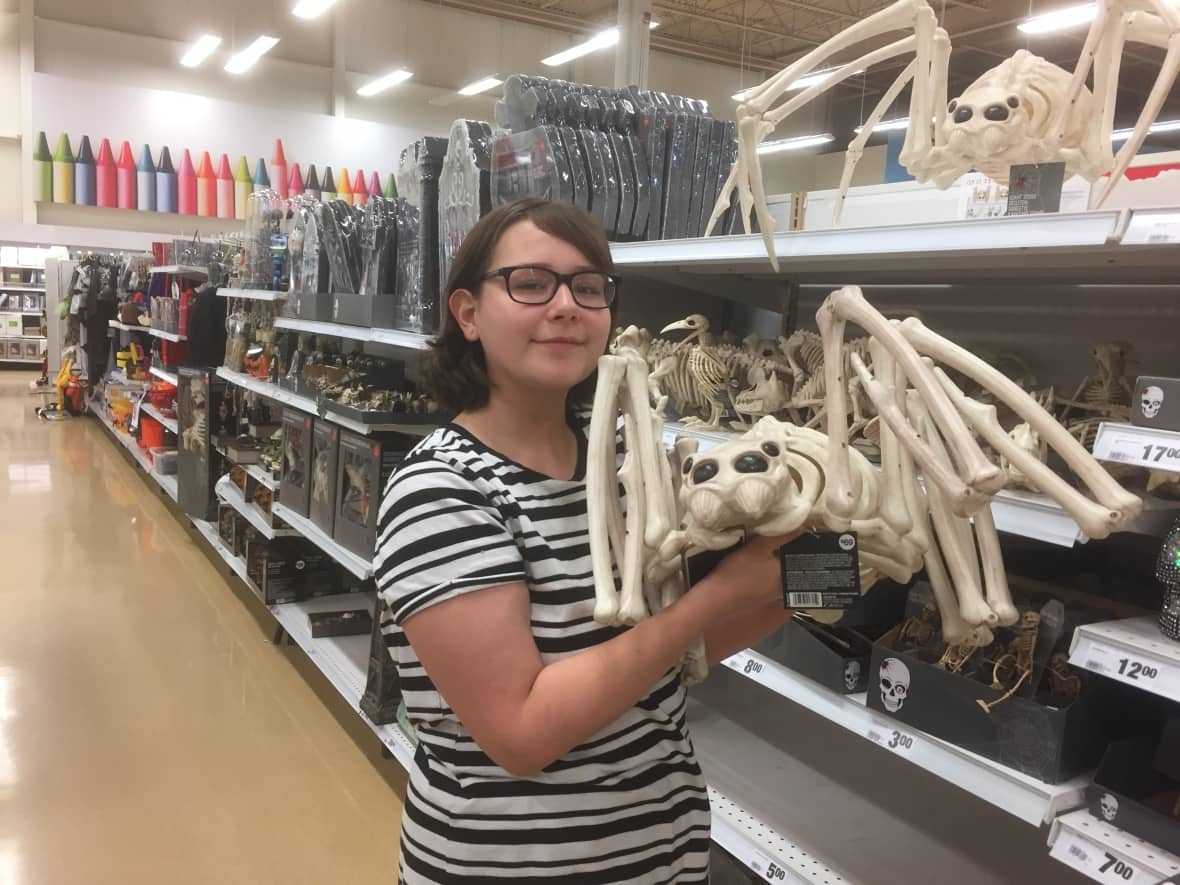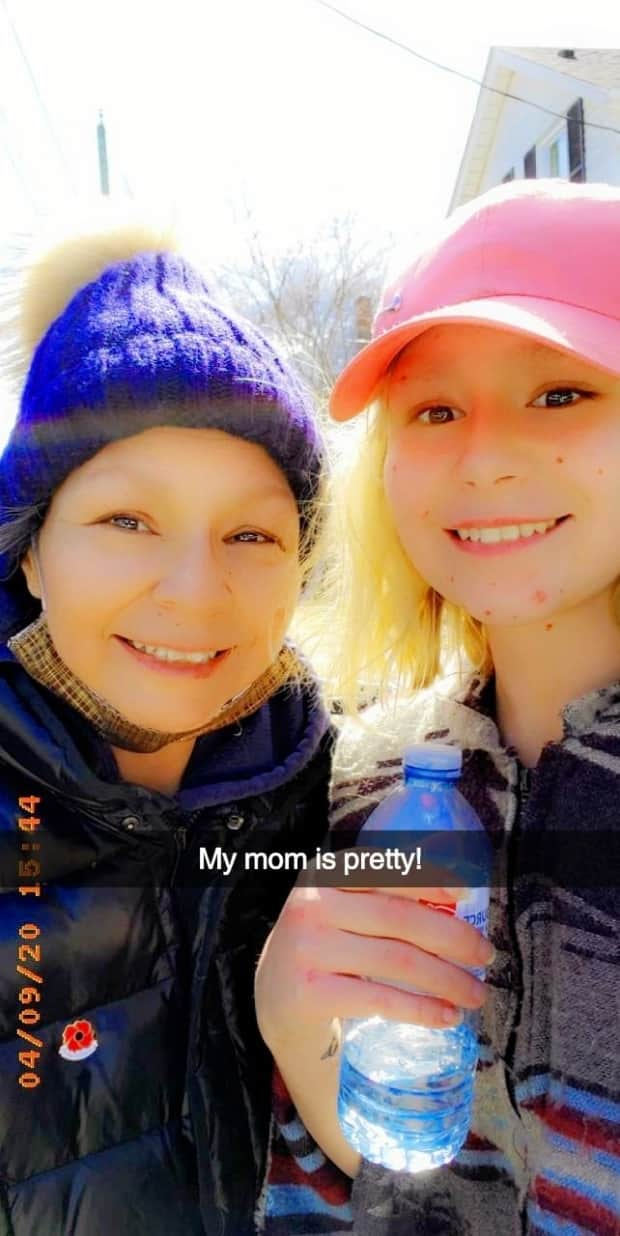This woman went to hospital with back pain and died. Now her family wants answers from Niagara Health

This New Year's Eve, Francine Shimizu marked three weeks since the loss of her daughter.
On Dec. 9, Heather Winterstein went alone to the emergency department at St. Catharines General Hospital for a severe backache, her family says. Earlier that week, she had fallen down some stairs at her father's house where she had been living and was in a lot of pain, her mother told CBC.
Less than 48 hours later, the 24-year-old died.
Her family says Heather was initially sent home with Tylenol but returned to hospital the next day, only to collapse in the waiting room.
Family members say they were told by the local public health unit that she had died from a Strep A blood infection. They were given the news when they were called for Strep A contact tracing after her death.
Today, the family has many questions surrounding her death on Dec. 10, including whether Heather received the right care, and whether her drug use or Indigenous heritage may have played a role in her treatment in some way.
"She was so loving, she was so giving," Shimizu said, adding that her daughter was working to complete her high school diploma and was hoping to study nursing, as her mother did. "She didn't deserve to be treated like that."
From their respective homes, Shimizu and Mark Winterstein, Heather's father, are now looking for answers as they plan a funeral and celebration of life later this month.
"I don't want somebody else's child looking for help… being alone. God… it just kills me. It just kills me to know that she was suffering," Shimizu said.

Neither the coroner nor Niagara Heath was able to confirm the cause of Heather's death to CBC News, and the factors that may have played a role leading up to it remain unknown. However, Niagara Health said "an internal quality care review is underway to fully understand the patient's experience, and the family will be involved in this process."
In a statement to CBC, Lynn Guerriero, Niagara Health president and chief executive officer, said she was "deeply troubled" by the concerns raised about the death.
She also said she has spoken to Heather's family and would talk to Indigenous leaders in the community.
"I will also be suggesting that this independent review look more broadly at the health-care experiences of Indigenous patients and their concerns," said Guerriero.
Niagara Health said it is also "fully co-operating" with an investigation conducted by the Ontario coroner's office.
2 days of pain and confusion
From his home in St. Catharines, Heather's father Mark recalled the painful days before his daughter died.
He told CBC News that the night she came home with Tylenol after the first hospital visit, he did his best to help her get comfortable so she could get some sleep.
When she woke up the next morning, he recalled, Heather told him that she was still in excruciating pain and asked him to call an ambulance.
Mark said the paramedics who arrived told Heather that they would take her to the urgent care centre in Fort Erie, but she could spend up to eight hours in the waiting room.
"It didn't seem like they wanted to take her, but I guess they also thought [her pain] was from a fall," Mark said. "They just thought she needed rest."
He said that ultimately, he trusted the judgment of the paramedics.
When Mark later called the hospital in Fort Erie to check in, he was told the 24-year-old was in fact at St. Catharines General. Mark believes Heather likely insisted the paramedics take her to the emergency department there.
He said the person on the phone told him he needed to come to the hospital right away, but wouldn't tell him why.
As Mark and his fiancé drove to the hospital on Dec. 10, he wondered what could be wrong.
"Back injuries sometimes can be lifelong and… [he thought], 'That's OK — we'll just find out what it is and we'll deal with it,'" Mark recalled.
Upon his arrival that evening, Mark said, he learned from doctors that his daughter had died.
Niagara Emergency Medical Services later confirmed to CBC that they responded to a 911 call for Heather on Dec. 10 and they "have committed to fully understand the events that transpired leading to the death of Ms. Winterstein," including taking part in the third-party review, but could not comment on the case further.
Her final moments
Shimizu, who said she was listed as her daughter's emergency contact, was called to the hospital at 8:30 p.m. on Dec. 10, she says.
She said she arrived to learn that medical staff had been trying to resuscitate Heather and walked in as they were doing chest compressions on her non-responsive daughter. Her mother said she was pronounced dead 15 minutes later.
Shimizu said Heather had been there for some time already, and she now wonders why she wasn't contacted by the hospital sooner.

Shimizu, who is a registered nurse and works in long-term care, said a better level of care should have been provided for her daughter.
"They're supposed to be the experts," she said.
Mark has similar concerns.
"As soon as somebody comes through the [hospital] door, it's a safe assumption that they are there for a reason."
Shimizu noted that police were called to the hospital and interviewed her, though she is unsure why.
Niagara Regional Police Service confirmed to CBC that officers were notified of the death of a 24-year-old woman at the hospital on Dec. 10. However, "at this time the cause of death has not been determined to be criminal in nature."
Police said they couldn't say more due to privacy concerns.
Unknown factors
Shimizu described her daughter as a caring person who had a passion for animals and liked to draw.
Shimizu said Heather had gotten in with the wrong crowd as a teenager, and had battled depression and drug use, but was getting help through counselling and treatment at a local methadone clinic.
However, she now asks if her drug use might have influenced how she was cared for.
"One of the first things that the physician said to me was that they noticed track marks on my daughter," Shimizu said, referring to marks that can indicate intravenous drug use. That upfront reference bothered her.
"We were working on her. We were trying to help her with her addiction and we just needed more time."
Shimizu also wonders if her daughter's Indigenous heritage could have been a factor in her care.
"They may not have identified her as that, however the fact of the matter is that she is Indigenous," Shimizu said.
While Winterstein has Indigenous heritage — her mother says Shimizu and her sister were adopted when they were young and reconnected with family on Six Nations of the Grand River in the 1990s — it is unclear whether or not the hospital staff knew that.
CBC has not reviewed any documents related to the family's history.
Wendy Sturgeon, executive director of the Niagara Chapter of Native Women, told CBC that through the local Indigenous community, she knew of Shimizu and her sister Jill, who works in Indigenous child welfare.
Speaking broadly, Sturgeon pointed to a history of racism that impacts the way Indigenous people across Canada are treated in health care.
However, she said Niagara Health has spent the past few years working closely with the local Indigenous Health Network to connect health-care providers with Indigenous cultural safety training.
She told CBC she has been aware of the case involving Heather, and considering recent deaths of Indigenous people in Ontario and Quebec related to health care, she'll be watching what happens next.
"I was rather taken aback," Sturgeon said, referring to Heather's story. "This Indigenous community has expended a lot of energy and a lot of time to work with all the health-care providers to the best of our ability."
Heather's aunt, Jill, believes the health-care system failed her niece.
"Heather goes with a strep infection and she's dead. That makes no sense," she said. "It's not fair to my sister and [Heather's] father. My heart just breaks for them."


